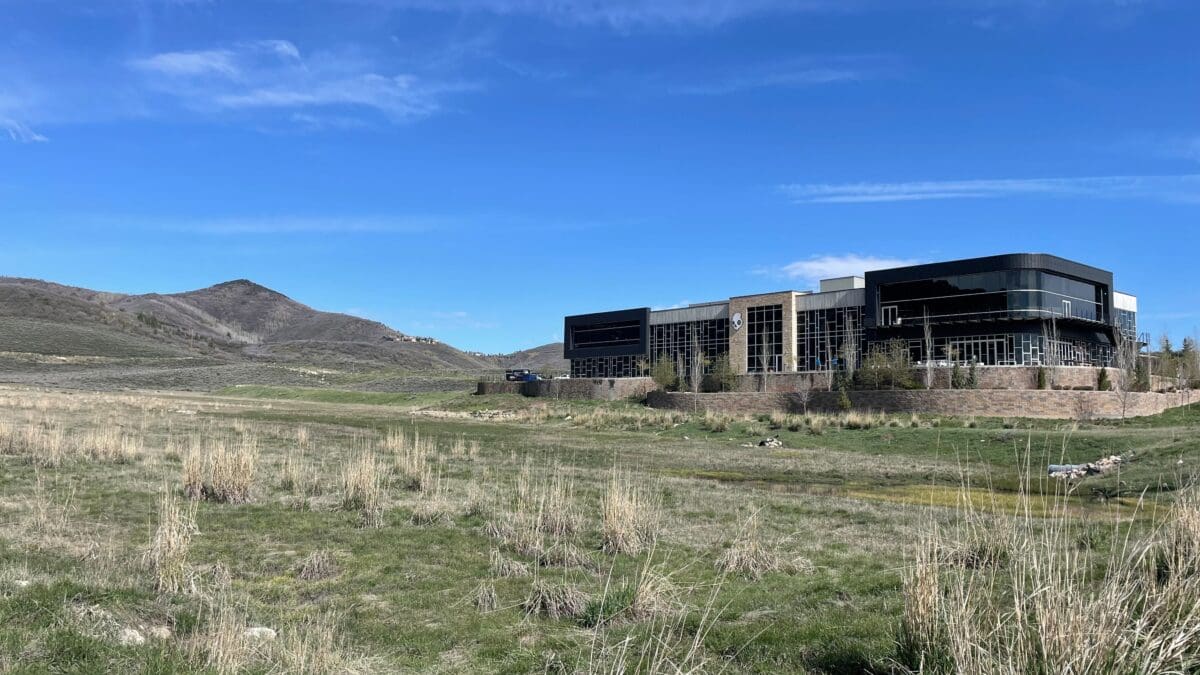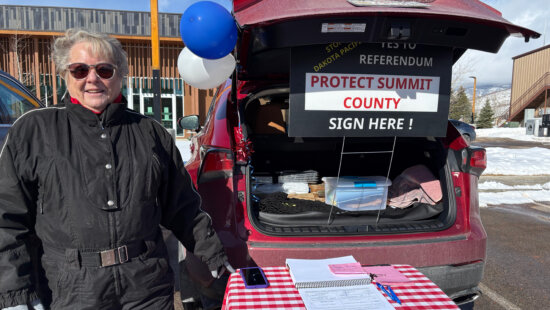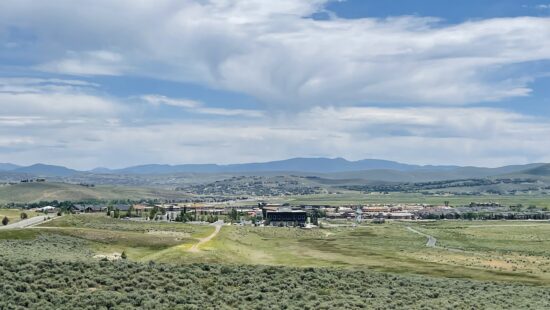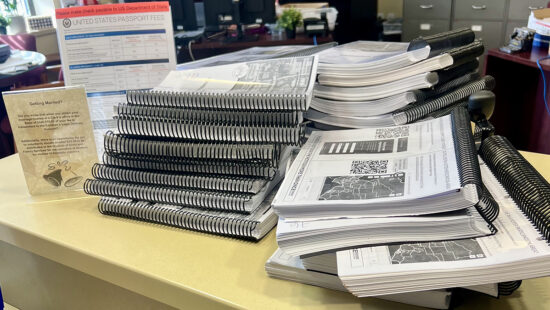Growth
Dakota Pacific plan met with widespread resistance from residents… AGAIN

Land west of the Skullcandy building in Kimball Junction where a massive housing and mixed use development is planned. Photo: TownLift // Marina Knight
'There’s been continued opposition to developing this for years and years and years, and still you guys are entertaining development. You guys want to develop units with taxpayers’ money. You’re just putting mass density into an area that can’t take any more density' - Eric Moxham
PARK CITY, Utah — Summit County residents packed a public hearing on Thursday, Nov. 7, to largely oppose Dakota Pacific’s revised development proposal for Kimball Junction for what seems like the umpteenth time. Concerns centered on traffic congestion, infrastructure capacity, and departure from the area’s original tech center zoning.
After Summit County won a ruling that S.B. 84 does not apply to Dakota Pacific Real Estate’s (DPRE) property at Kimball Junction, the parties agreed to temporarily pause their legal proceedings and began closed door negotiations. S.B. 84 is a bill that would have allowed for DPRE to move forward with its Park City Tech Center Project without county approval. The County then purchased the Skull Candy Building for 17.5 Million from a Dakota Pacific subsidiary and is now presenting a revised plan as a public-private partnership for the tech center development.
The proposal changes include increasing the number of residential units to over 750, up from 500 in previous iterations, and introducing a public-private partnership structure, including a transportation center and town square concept.
Traffic dominated the discussion, with multiple residents questioning the timing of development before infrastructure improvements.
“The traffic’s terrible. We’re going to fix it, but then we’re going to build 750 units, bringing in all those new cars,” said Jodi Buren, a Kimball Junction resident. “It just doesn’t make sense. It’s like, fix the traffic and then bring in more people for more traffic.”
Ed Rutan, a longtime Pinebrook resident, emphasized the departure from the area’s original purpose. “The original purpose of the development agreement, which was based on the tech center concept, was to provide more higher paying jobs,” Rutan said. “What’s missing is more higher paying jobs.”
Several speakers questioned the development’s infrastructure demands.
“I heard all these plans about traffic, nothing about water, sewer, or schools,” said Highland Estates resident Cathy Silver. “Those are huge things. I want to know where that’s coming from—how it’s going to affect our new sewer plant that we just spent a lot of money on.”
The public-private partnership structure also drew scrutiny.
“This whole issue—public, private partnership—seems to be a real catch-all term these days. But, as a taxpayer in this county, what that means to me is that I’m going to have to pay to get Dakota Pacific to build a project that they want to build,” said Suzanne Rosenberg. “So I’m going to be contributing to [their] income and to [their] profits. I really don’t understand why I need to help pay for that.”
Another resident, Eric Moxham, who is one of the founding members of Friends for Responsible Development for Greater Park City, went into the “sordid” history of the property, stating that “there’s been continued opposition to developing this for years and years and years, and still you guys are entertaining development.” Moxham continued, “You guys want to develop units with taxpayers’ money. You’re just putting mass density into an area that can’t take any more density… This is not a vacuum.”
County officials announced that the review process will continue with weekly meetings with Dakota Pacific during the normal Wednesday meetings. The meetings will be accessible online through the county website.
Appreciate the coverage? Help keep Park City informed.
TownLift is powered by our community. If you value independent, local news that keeps Park City connected and in the know, consider supporting our newsroom.


















